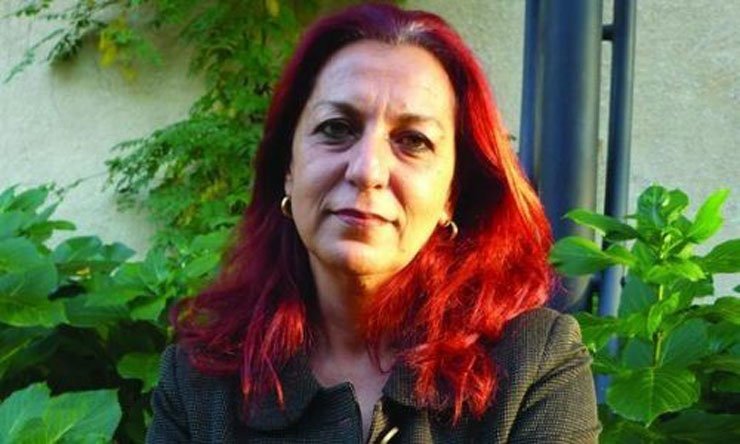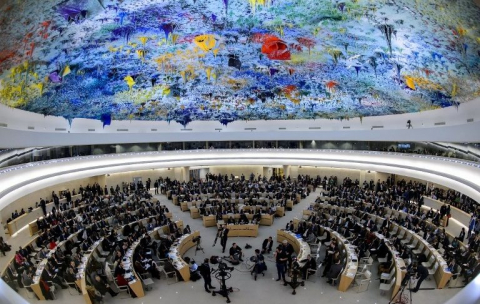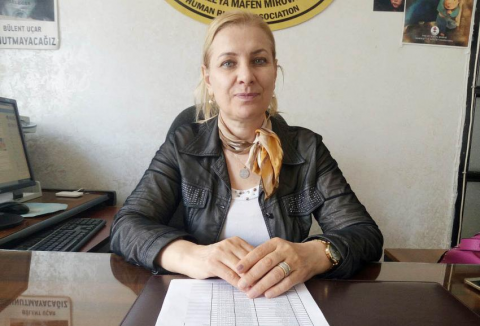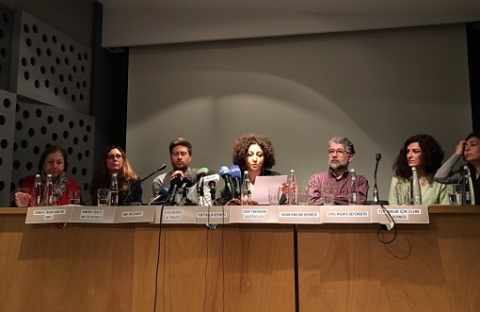
Solidarity with Academics for Peace: Call to Action
On 3 March 2019, the Istanbul Regional Court of Justice announced its first decision on appeal against academics for signing the “We will not be party to this crime!” (Bu Suça Ortak Olmayacağız) peace petition prepared by Academics for Peace (Barış için Akademisyenler). In this ruling, the Court upheld an imprisonment sentence of one year and three months for Zübeyde Füsun Üstel, a political scientist retired from Galatasaray University. This ruling is the first to have exhausted all local remedies. It is no longer open to national review, other than an individual application to the Constitutional Court, which does not suspend the execution of the imprisonment sentence. The ruling is likely to set a precedent for 25 related cases pending appeal, involving other academics who also signed the peace petition.
In total, 2212 academics have signed the peace petition that was launched in January 2016, of which 653 are currently under threat of being convicted. The petition called for peace and voiced opposition to military operations and extensive curfews, which began in 2015 and were particularly targeted towards Kurdish provinces. Specifically, it called for an end to the excessive military intervention and pressed for conditions to facilitate negotiations and a peaceful resolution to the conflict. The petition highlighted violations of domestic and international law, and demanded access for independent observers to monitor and report human rights violations. It also illustrated that the 24-hour curfew violated the right to life, liberty and security, physical and mental integrity, health, food, education, and work of thousands of civilians.[1] The military operations peaked in Cizre in February 2016; a coalition of rights organizations in Turkey reported 178 unarmed civilians were burnt and later found to be deceased.[2]
Since the petition was launched, 549 signatory academics have been dismissed from Turkish universities due to their call for a peaceful resolution to the conflict and demand for Turkish authorities to take responsibility for these excessive military actions.[3] In addition, the passports of hundreds of academics have been cancelled or confiscated, and up to 70 academics have been taken into police custody. Currently, 136 academics are being sentenced for “propagandising on behalf of a terrorist organisation” due to their condemnation of gross human rights violations in the predominantly Kurdish region.[4] A majority of the academics protested this form of intimidation in court, as did Üstel, arguing that neither condemning human rights violations nor calling for peace constitute a crime.
The Netherlands Helsinki Committee (The Hague), the Association for Monitoring Equal Rights (Istanbul) and the Truth Justice Memory Center (Istanbul) are concerned about the severe restrictions imposed on academic freedom in Turkey. In a society where the majority of accessible news outlets are in line with the ruling party’s views, it is more important than ever that the freedom to pursue intellectual inquiry, freedom to debate opposing ideas, and freedom of expression are ensured. As individuals are forced out of the academic realm and students are intimidated based on their opinions, this latest crackdown on Turkish academia not only violates international standards for freedom of expression, but also breaches the right of students to learn and engage in the production and exchange of knowledge. When educational institutions cannot provide discussion platforms, plurality is hindered from flourishing. As polarisation deepens within Turkey, it is essential that independent academics are not repressed, and that they are able to highlight additional facts and voice alternative opinions to contribute to public discourse. This includes condemning human rights violations committed by the military and urging authorities to take responsibility for their violations. In the present context, with local elections taking place at the end of this month, the intensified crackdown on human rights defenders, including the Court’s decision about Üstel, and the indictment against Osman Kavala et al. relating to the Gezi Park protests, sends a chilling signal to anyone critical of the government.
The Netherlands Helsinki Committee, the Association for Monitoring Equal Rights, and the Truth Justice Memory Center call on the Council of Europe Commissioner for Human Rights and the OSCE Office for Democratic Institutions and Human Rights to investigate the restrictions imposed on academics in Turkey, and to urge Turkish authorities to initiate a revision of the ruling on Zübeyde Füsun Üstel and drop all charges against academics indicted for signing the peace petition.
The Netherlands Helsinki Committee, the Association for Monitoring Equal Rights, and the Truth Justice Memory Center call on the Dutch government, the EU Member States, and the European External Action Service to:
- discuss the case of Zübeyde Füsun Üstel and other Peace Academics during bilateral and multilateral meetings with the Turkish government; and
- place the condition on strengthening relations with Turkey— especially of economic ties— on a reform of its Anti-Terrorism legislation so that it can no longer be used as a tool to restrict the right to freedom of expression, and the space of academics to research and share their concerns with the public.
The Netherlands Helsinki Committee, the Association for Monitoring Equal Rights, and the Truth Justice Memory Center call on the International Association of Universities, academic institutions in the Netherlands and other EU countries to condemn the latest repression of academics in Turkey, and to facilitate continued professional activities for the Academics for Peace, including providing online access to academic and research platforms.
The Netherlands Helsinki Committee, the Association for Monitoring Equal Rights, and the Truth Justice Memory Center urge Turkish authorities to:
- drop all charges against Zübeyde Füsun Üstel;
- end the application of legislation that in nature and effect is similar to emergency decrees to silence dissenting voices exercising their fundamental freedoms;
- stop criminalising dissident voices under broad terrorism charges; and
- interpret the Academics for Peace cases in accordance with the international obligations of Turkey.
[1] See: Office of the United Nations High Commissioner for Human Rights (February 2017): Report on the human rights situation in South-East Turkey July 2015 to December 2016: https://www.ohchr.org/documents/countries/tr/ohchr_south-east_turkeyreport_10march2017.pdf
[2] See: Diyarbakır Barosu, Gündem Çocuk Derneği, İnsan Hakları Derneği, Türkiye İnsan Hakları Vakfı, Sağlık ve Sosyal Hizmet Emekçileri Sendikası (March 2016): 79-Day Curfew Observation Report, p.36: https://tihv.org.tr/79-gunluk-sokaga-cikma-yasagi-ardindan-cizre-ortak-gozlem-raporu/
[3] These academics were either directly dismissed by their universities or later dismissed by emergency decrees during the last State of Emergency. Additionally, a significant portion of the academics were resigned/forced to resign or retired/forced to retire: https://barisicinakademisyenler.net/node/314
[4] Of these 136 academics, 108 have “suspended sentences.” Suspension means that the defendant accepts suspending the pronouncement of judgment for a period of five years. In this five year period, the defendant must refrain from committing further crimes. If the defendant agrees, the charges will not be placed in their criminal record. The risk of being imprisoned and dismissed from public positions pushed these 108 academics to accept the suspended sentences; these sentences cannot be appealed. Üstel rejected suspending her sentence so she could appeal the sentence and defend her position that calling for a peaceful resolution to the conflict does not constitute a crime. Of the 136, 3 received “deferred sentences.” This type of sentence means that the defendant will not be imprisoned if she/he shows signs of regret and good behaviour. Since Üstel did not show any sign of regret for exercising her right to freedom of expression, she did not receive a deferral either. Lastly, of the 136 academics, 25 were convicted and sentenced to imprisonment, including Üstel. Her sentence was the first to be adjudicated by the court of last instance. See https://bit.ly/2Trxigh




